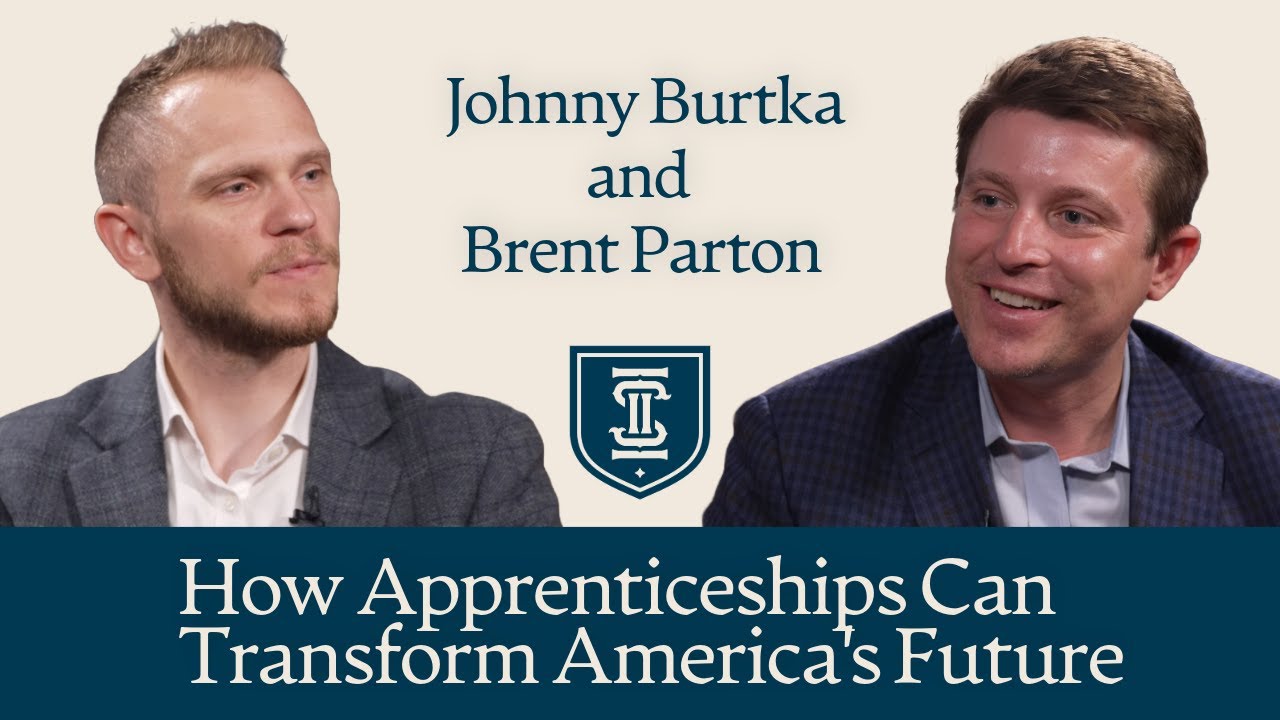In the discussion, Johnny Burtka and Brent Parton emphasize the transformative potential of apprenticeships in America as a viable alternative to traditional college education, which often leads to significant debt and limited job prospects. They advocate for a cultural shift to recognize apprenticeships as valuable pathways to diverse careers, highlighting the need for better integration with the education system and stronger partnerships between industry and educational institutions.
In the discussion between Johnny Burtka and Brent Parton, the focus is on the transformative potential of apprenticeships in America, particularly in light of the shortcomings of the current education system. Burtka highlights the prevailing belief that a four-year college degree is essential for achieving the American dream, a notion that has led to significant student debt and wasted time for many. Both speakers agree that this one-size-fits-all approach is outdated and that alternative pathways, such as apprenticeships, can lead to greater success and financial stability.
Brent Parton shares his insights on the apprenticeship model, emphasizing its dual nature as both education and employment. He points out that apprenticeships provide practical experience and skills while allowing individuals to earn money, making them an attractive option for those concerned about college debt and job security. The conversation touches on the growing interest in apprenticeships as a viable alternative to traditional college education, especially in light of labor market demands and the need for skilled workers in various industries.
The speakers discuss the cultural stigma surrounding apprenticeships in the U.S., where pursuing vocational training is often viewed as a lesser path compared to college. Parton notes that in countries like Switzerland and Germany, apprenticeships are widely accepted and celebrated, with a significant percentage of high school graduates opting for this route. He argues that the U.S. needs to shift its perspective on apprenticeships, viewing them as foundational experiences that can lead to diverse career paths rather than as a limitation on future opportunities.
Parton identifies three key areas that need improvement to enhance the apprenticeship model in the U.S.: better integration with the education system, a national commitment from industry, and the establishment of partnerships among employers. He highlights successful examples from states like Colorado and Indiana, where collaborative efforts have led to the development of effective apprenticeship programs. The conversation emphasizes the importance of creating a supportive infrastructure that encourages businesses to invest in apprenticeships and engage with educational institutions.
Finally, the discussion touches on the potential for apprenticeships to extend beyond skilled trades into white-collar professions. Parton shares his work with CareerWise, a nonprofit organization focused on creating apprenticeship opportunities in various sectors, including healthcare and technology. He envisions a future where a significant percentage of high school graduates participate in high-quality apprenticeship programs, ultimately transforming lives and communities. The conversation concludes with a call for collaboration between industry and education to redefine the role of apprenticeships in preparing the workforce for the future.
